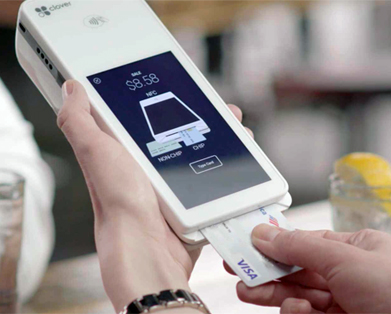The economic impact of the pandemic has highlighted an important question of strategy for organizations: lean in hard or make time for self-care? Anecdotally, many leaders are reacting to the stress by asking employees to work more hours than ever, even as those employees admit that they are already burning out.
To survive the pandemic, organizations need agility, innovation and high levels of productivity. Pushing hard is a solid method in the short term, but it stops making sense in a pandemic that is predicted to impact the world economy for years to come. Instead, leaning out just a little may be the best way to ensure sustained productivity.
For many work hours are getting longer.
When shutdowns began in the U.S., it felt like we were all holding our breath. Heralded as “the great pause,” many hoped that without commutes, the increased time for ourselves and our loved ones might continue. But as the economic pressure mounted, it did not take long for organizations to start scheduling remote meetings during commuting hours, and the workday got longer and longer.
“I used to work 9 hour days. Our contract is for 8 hours, but I didn’t mind. Now I work 14 hour days for months now and we only get paid for 8. But if I try to bring it up my boss tells me I’m lucky I have a job,” said a father of two who wished to remain anonymous. “I never see my kids. I sleep from 2am to 8am and get online right away. I don’t know how much longer I can do this, but I have no choice.”
Imagine that you are in decent physical shape. You can jog a mile, but you feel tired after that. Suddenly you find yourself entered in a marathon, running with a fifty pound backpack strapped to your back, and no matter how you feel you have no way to stop. That’s our life in the pandemic. And it illustrates how unsustainable a “just work harder” response really is.
The pandemic brings us the heaviness of loss.
“People are facing the loss of feeling safe and secure, the loss of control over our own lives, the loss of trust in the world as a safe place.” Those are the words of Dr. Pauline Boss, the author of eight books and professor emeritus at the University of Minnesota. Boss is the pioneering researcher who discovered the reality of “ambiguous loss” and worked with the U.S. military regarding those who went missing in Vietnam. She is currently writing “Ambiguous loss: Pandemic and the Myth of Closure,” which is due in 2021 from W.W. Norton.
“Many have clear cut losses like the loss of loved ones or bankruptcy,” Boss, who prefers to refer to herself as a family therapist, told me. But of particular concern to her is the loss of trust in our government leaders. And that’s worth recognizing, because when people lose trust in leaders, they need a skillful boss more than ever.
“The longer the pandemic goes on, the longer our leaders fight. And there is no end in sight,” said Dr. Boss. “Things are so totally out of the control right now that you can’t be with your loved ones, or you can’t have your daily routine. You can’t even go to a ballgame or have a graduation. And how are we supposed to school our children? Parents of those children are working. It’s just chaos.”
“It’s no wonder people are feeling weary. I like the word ‘ennui,’ it’s a world weariness,” Boss explained. “People are having a normal reaction to a crazy and irrational situation."
The heaviness and world weariness we feel right now requires us to care for ourselves and each other is ways we may have not needed prior to the pandemic. And that takes time, time that cannot be spent at work. But time to manage stress is not something our workplace culture is designed to accommodate.
Boss has spent much of her career studying America’s mastery-based culture. “We like winning and we don’t like losing,” said Boss. “We like to be in control. But right now we are not in control of our own destinies.” For Boss, the American emphasis on mastery has inspired us to find impressive solutions to problems, because we believe we can. However, the mastery-based culture comes with a built in weakness: it does not prepare us to face loss.
“In our society, because we are so mastery oriented, we tend to shame people who aren’t over it and back to work in a few days. We have to stop using the word loser. We have to stop telling people to move on. All of those are very hurtful comments to people.”
The solution? “I think the word empathy has got to come back,” said Dr. Boss. “Corporate leaders have not had that high on their list. The focus has always been on profits.” But now they need to, because according to Dr. Boss, “The treatment for sadness is social connection.”
Empathy and connection are key to productivity.
Empathy. Compassion. Connection. If we are going to lead our teams in the kind of agile, innovative work we will need to do to bring our organizations through this new challenge, we have to start with connection. And that means recognizing that we are all carrying a heavy load and that some of us are suffering.
We can only do our best work if we have the time, support and rest we need to carry the heaviness of these hard times. There is no point in pretending this is not true, because if we keep going with “just work harder” we’ll burn our people out. Instead of reacting to the threat of the pandemic economy with a knee-jerk push to work harder, we can work smarter. As counterintuitive as it feels, slowing down and giving empathy could be the path to greater productivity.
When we are real together, admitting how hard it is and facing that reality, we create authentic connection. We can face the sadness together, without pretense, and build something powerful with our teams. Because that is cohesive teams are formed: when there is space to be real there is space to take a chance on great ideas.
This article was originally published By Alison Escalante, forbes.com.










